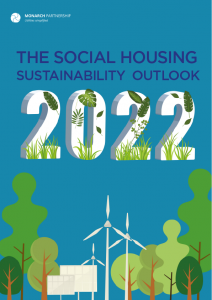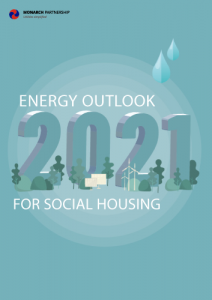Every country across the world is feeling the effects of the climate crisis. And as sustainability becomes increasingly necessary, nations are beginning to prioritise their net zero targets. Scotland is currently stepping up to the plate, with sustainable technology and innovative eco-schemes.
Aiming to reach its net zero targets by 2045 on the basis of advice from the UK Climate Change Committee (CCC), Scotland is putting in place measures to ensure it achieves its goals on time. The country was one of the first in the world to declare a climate emergency. And it is clear that this is now at the top of its priorities.
So, what steps is Scotland taking to protect the environment? And what can other countries learn from them?
Renewable technology
With its vast landscape, and delicate habitats, it is vital that Scotland becomes more sustainable. The heavy use of fossil fuel energy could see ecological balances disturbed, and already endangered species completely wiped out.
Scotland has already made considerable progress, incorporating various renewable energy projects over the past few years. One core implementation is the O2 Orbital, the world’s most powerful tidal turbine, located off the Orkney Coast. It has the capacity to reach the electricity demands of 2000 homes annually over 15 years. With £3.4 million from the Scottish government’s Saltire Tidal Energy Challenge Fund, the turbine is a significant milestone in the country’s net zero journey.
Scotland’s stunning scenery contributes to a large percentage of the tourist generated economy. So, to recover financially from Covid-19, it is essential that Scotland furthers its focus on recovering from the climate crisis and protecting its eco-landscape.
Environmental strategies
In the run up to its net zero targets, Scotland has put in place a number of environmental strategies, including the ‘Heat in Buildings Strategy’. The heavy use of fossil fuels around the UK has resulted in high inefficiency, fuel poverty, and a negative financial impact. The strategy will see homes, offices and buildings become warmer, more energy efficient and financially beneficial.
Announced earlier this year, the strategy aims to transform the heating systems of 1 million homes and 50,000 non-domestic buildings. With a government initial investment of £1.6 billion over the next five years, the country can begin to significantly reduce its reliance on fossil fuel heating systems. These heating systems contribute to around a fifth of Scotland’s annualy greenhouse emissions. So, by replacing them with systems requiring renewable energy, harmful emissions could be cut considerably.
The COP26 summit is set to take place in Glasgow later this year, and will put Scotland right at the centre stage of sustainability. The 26th United Nations climate change conference is a chance for the country to display how far it has come in its journey towards sustainability and how it intends to move towards their net zero targets.
Green jobs
The pandemic has impacted every sector across the world, with countless people losing their jobs due to the restrictions. This has in turn impacted economies. But with the implementation of green energy tech and schemes, Scotland could potentially regenerate a huge amount of employment.
130,000 green jobs could be created in the next two years, if Scotland keeps on track with its net zero targets. The added adoption of technology and energy digitalisation could see the creation of even more green jobs.
Where does Monarch come in?
At Monarch, we understand the importance of prioritising sustainability. It is our job to help you help the environment.
With our extensive range of services and expertise, we can determine the right path for your business. We prioritise improving environmental and economic health, through becoming energy efficient and embracing green energy.
Get in touch today to find out how Monarch can help you on your journey towards sustainability.















